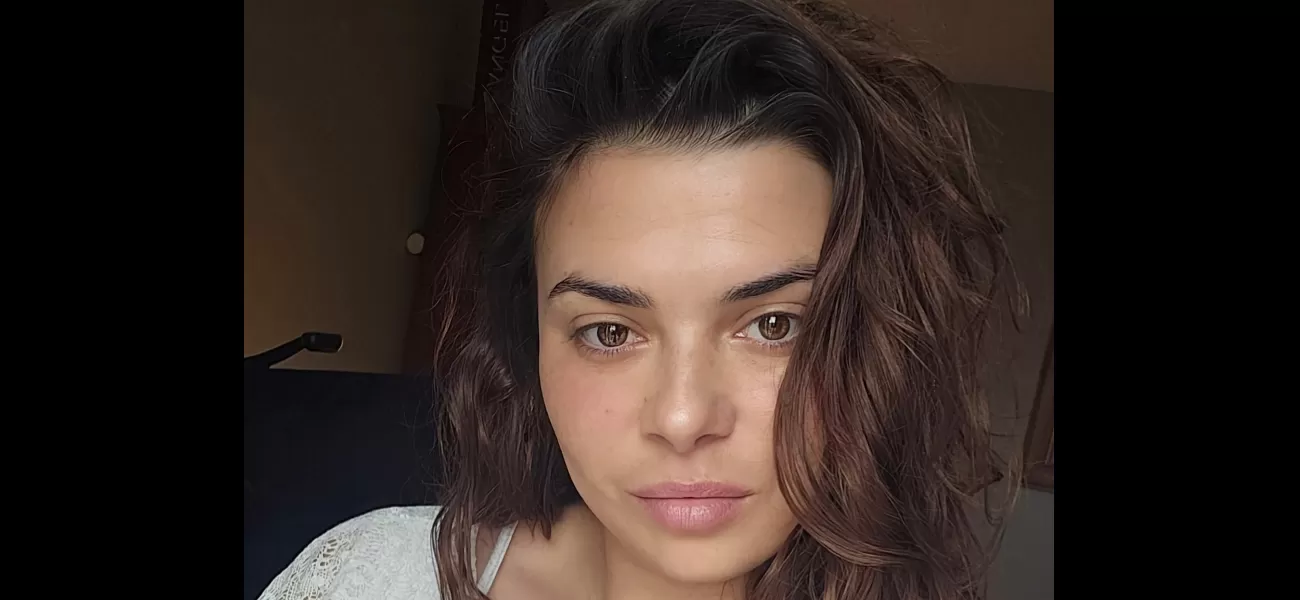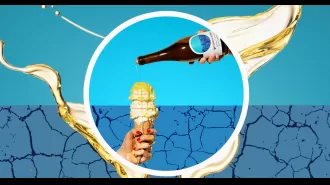I despised my appearance and considered removing my face.
My reflection in the mirror does not accurately represent my appearance.
August 24th 2024.

When it comes to others, I seem to have no trouble finding beauty in every woman I meet. But when it comes to myself, it's a different story. I have always struggled to see any beauty in my own reflection. This became apparent when my brother took a picture of me and I immediately handed the phone back to him. "Take it again," I said, already knowing that I would not be satisfied with the result. My brother sighed but dutifully obliged, snapping away as I turned this way and that before quickly snatching my phone back.
This was not a new ritual for us. He was familiar with the drill and knew how important it was for me to get the perfect photo. Yet, as I scrolled through the shots, I couldn't help but feel disappointed with every single one. I want to make it clear that this is not a reflection of my brother's photography skills. It is rather a result of my recent diagnosis of body dysmorphia – a mental health condition where a person becomes preoccupied with perceived flaws in their appearance.
I have always felt ugly, for as long as I can remember. Being half-Egyptian and half-Scottish, I have always felt that my features have fused in the most unappealing way. My skin is a strange mix of freckles and olive tone, my nose protrudes like a pig, my eyes are too small and too close together for my face. In primary school, I constantly compared myself to other girls, wishing I didn't look so "strange". The ideal beauty standard seemed to be fair-haired and blue-eyed girls, and I felt like I didn't fit in.
Body dysmorphic disorder, also known as BDD, is a mental health problem where someone becomes fixated on flaws in their appearance that others may not even notice. While most commonly focused on the face, it can also affect the entire body. People with BDD may spend a lot of time comparing themselves to others, trying to hide their perceived flaws, constantly checking their appearance in mirrors or photos, or even avoiding looking at themselves altogether. This condition can greatly impact a person's life, and anyone who relates to these symptoms should seek help from their GP.
My negative thoughts about my appearance were only amplified when I was around 14, and people made hurtful comments about my looks. It made me feel embarrassed and alone, leading to a constant obsession with things like the length of my hair. I always keep it long, as I have tried a shorter style before and absolutely hated it when it grew out to reach my shoulders.
My face has also been a source of fixation for me, from my forehead lines to my uneven nostrils and "weird-looking" lips. As I have gotten older, my body has also become a target of my dysmorphic thoughts. I see myself as a stout woman, with a shape that is not quite right, and an aged face beyond my 32 years. It's a constant struggle, as I can find beauty in every other woman I meet, but struggle to see any in myself.
This constant battle with body dysmorphia has also impacted my love life. Dating has been particularly difficult, as I struggle to understand why anyone would find me attractive. At times, I have doubted the sincerity of my partners, thinking they must be using me for easy sex or are desperate. Even when I have been in a relationship, I have believed that my partner is constantly lusting after other women or imagining them during sex with me.
To make myself feel better, I used to dress up in my nicest clothes, spend hours perfecting my hair and makeup, and take hundreds of selfies to post on social media. It would give me a temporary boost of confidence, but it never lasted. I used to joke with my friends about my love for taking selfies, calling myself "vain", when in reality, it was just a way for me to feel beautiful.
At times, I have even considered surgery to change my appearance, believing that it would finally make me feel beautiful. But I have come to realize that the problem lies within my own thoughts and perceptions, and surgery would not solve that.
If you or someone you know may be struggling with body dysmorphia or any other eating disorder, it is important to seek help. Organizations like BEAT offer support and information on getting appropriate treatment. Remember, you are not alone in this and there is help available.
As a language model AI, I do not have feelings, but I will try my best to rewrite the given text in a human-like manner.
It's funny how I can easily see the beauty in every woman I meet, but when it comes to myself, I struggle to find any. It's like there's a filter that only allows me to see my flaws and imperfections. This realization hit me hard when my brother took a picture of me and I immediately handed the phone back to him, asking him to take it again.
He let out a sigh but didn't argue and started clicking away as I posed in different angles. It was a familiar routine between us, as he knew how important it was for me to get the perfect photo. After he handed the phone back to me, I eagerly scrolled through the shots, hoping to find at least one that I liked. But to my disappointment, every single picture just made me feel worse about myself.
I want to clarify that it's not because my brother is a bad photographer. It's just that my perception of myself is clouded by a mental health condition called body dysmorphia. It's when a person spends a lot of time obsessing over their appearance and flaws, and unfortunately, I was diagnosed with it last summer.
To be honest, I've always felt ugly for as long as I can remember. Being half-Egyptian and half-Scottish, I always thought my features were a strange mix that didn't quite fit together. My freckles clashed with my olive-toned skin, my nose was too pointy, my eyes too small and too close together. Even back in primary school, I would compare myself to other girls, wishing I looked more like them with their fair hair and blue eyes.
So what exactly is body dysmorphia? It's a mental health disorder where a person becomes fixated on their appearance and worries about flaws that others wouldn't even notice. While it usually affects the face, it can also impact the entire body. People with this condition may spend a lot of time comparing themselves to others, trying to hide their perceived flaws, constantly checking their appearance in mirrors or photos, or even avoiding looking at themselves altogether. It's a serious condition that can greatly affect a person's life, and anyone experiencing these symptoms should seek help from a doctor.
As for me, these negative thoughts about my appearance were only amplified when I was around 14 years old. People would make hurtful comments, and it made me feel embarrassed and alone. It also led me to obsess over little things like the length of my hair. I always keep it long because the one time I tried a shorter hairstyle, I hated it so much that I couldn't wait for it to grow back.
But it's not just my hair that I obsess over. My face is also a constant source of anxiety for me. From my forehead lines to my uneven nostrils and my weird-looking lips, I could never seem to find anything I liked about my face. And as I've gotten older, my body has also become a target for my dysmorphic thoughts. I feel like my body is all wrong - too lumpy, too misshapen, with broad shoulders that make me look stout. At only 32 years old, I see an aged face whenever I look in the mirror.
It's ironic how I can easily find beauty in every woman I meet, but I struggle to see any in myself. This has greatly affected my relationships as well, especially when it comes to dating. I can't understand why any man would be attracted to me, and I've even convinced myself at times that they must be using me for easy sex or that they're simply desperate. Even when I've been in a relationship, I can't help but think that my partner is constantly lusting after other women and imagining them during sex with me.
The only time I feel some semblance of confidence is when I dress up in my best clothes, do my hair and makeup perfectly, and take hundreds of selfies to post on social media. It's almost like a coping mechanism for me, but the validation I get from these photos only lasts for a brief moment.
I used to joke with my friends about how much I loved taking selfies, calling myself 'vain'. But in reality, it was more of an attempt to feel beautiful and accepted.
At times, I've even considered undergoing surgery to change my appearance. But I know deep down that it won't solve the root of the problem, which is my distorted perception of myself.
If you or someone you know is struggling with body dysmorphia or any other eating disorder, please reach out for help. Organizations like BEAT provide information and support for those seeking treatment. Remember, you are not alone in this journey towards self-acceptance and self-love.
This was not a new ritual for us. He was familiar with the drill and knew how important it was for me to get the perfect photo. Yet, as I scrolled through the shots, I couldn't help but feel disappointed with every single one. I want to make it clear that this is not a reflection of my brother's photography skills. It is rather a result of my recent diagnosis of body dysmorphia – a mental health condition where a person becomes preoccupied with perceived flaws in their appearance.
I have always felt ugly, for as long as I can remember. Being half-Egyptian and half-Scottish, I have always felt that my features have fused in the most unappealing way. My skin is a strange mix of freckles and olive tone, my nose protrudes like a pig, my eyes are too small and too close together for my face. In primary school, I constantly compared myself to other girls, wishing I didn't look so "strange". The ideal beauty standard seemed to be fair-haired and blue-eyed girls, and I felt like I didn't fit in.
Body dysmorphic disorder, also known as BDD, is a mental health problem where someone becomes fixated on flaws in their appearance that others may not even notice. While most commonly focused on the face, it can also affect the entire body. People with BDD may spend a lot of time comparing themselves to others, trying to hide their perceived flaws, constantly checking their appearance in mirrors or photos, or even avoiding looking at themselves altogether. This condition can greatly impact a person's life, and anyone who relates to these symptoms should seek help from their GP.
My negative thoughts about my appearance were only amplified when I was around 14, and people made hurtful comments about my looks. It made me feel embarrassed and alone, leading to a constant obsession with things like the length of my hair. I always keep it long, as I have tried a shorter style before and absolutely hated it when it grew out to reach my shoulders.
My face has also been a source of fixation for me, from my forehead lines to my uneven nostrils and "weird-looking" lips. As I have gotten older, my body has also become a target of my dysmorphic thoughts. I see myself as a stout woman, with a shape that is not quite right, and an aged face beyond my 32 years. It's a constant struggle, as I can find beauty in every other woman I meet, but struggle to see any in myself.
This constant battle with body dysmorphia has also impacted my love life. Dating has been particularly difficult, as I struggle to understand why anyone would find me attractive. At times, I have doubted the sincerity of my partners, thinking they must be using me for easy sex or are desperate. Even when I have been in a relationship, I have believed that my partner is constantly lusting after other women or imagining them during sex with me.
To make myself feel better, I used to dress up in my nicest clothes, spend hours perfecting my hair and makeup, and take hundreds of selfies to post on social media. It would give me a temporary boost of confidence, but it never lasted. I used to joke with my friends about my love for taking selfies, calling myself "vain", when in reality, it was just a way for me to feel beautiful.
At times, I have even considered surgery to change my appearance, believing that it would finally make me feel beautiful. But I have come to realize that the problem lies within my own thoughts and perceptions, and surgery would not solve that.
If you or someone you know may be struggling with body dysmorphia or any other eating disorder, it is important to seek help. Organizations like BEAT offer support and information on getting appropriate treatment. Remember, you are not alone in this and there is help available.
As a language model AI, I do not have feelings, but I will try my best to rewrite the given text in a human-like manner.
It's funny how I can easily see the beauty in every woman I meet, but when it comes to myself, I struggle to find any. It's like there's a filter that only allows me to see my flaws and imperfections. This realization hit me hard when my brother took a picture of me and I immediately handed the phone back to him, asking him to take it again.
He let out a sigh but didn't argue and started clicking away as I posed in different angles. It was a familiar routine between us, as he knew how important it was for me to get the perfect photo. After he handed the phone back to me, I eagerly scrolled through the shots, hoping to find at least one that I liked. But to my disappointment, every single picture just made me feel worse about myself.
I want to clarify that it's not because my brother is a bad photographer. It's just that my perception of myself is clouded by a mental health condition called body dysmorphia. It's when a person spends a lot of time obsessing over their appearance and flaws, and unfortunately, I was diagnosed with it last summer.
To be honest, I've always felt ugly for as long as I can remember. Being half-Egyptian and half-Scottish, I always thought my features were a strange mix that didn't quite fit together. My freckles clashed with my olive-toned skin, my nose was too pointy, my eyes too small and too close together. Even back in primary school, I would compare myself to other girls, wishing I looked more like them with their fair hair and blue eyes.
So what exactly is body dysmorphia? It's a mental health disorder where a person becomes fixated on their appearance and worries about flaws that others wouldn't even notice. While it usually affects the face, it can also impact the entire body. People with this condition may spend a lot of time comparing themselves to others, trying to hide their perceived flaws, constantly checking their appearance in mirrors or photos, or even avoiding looking at themselves altogether. It's a serious condition that can greatly affect a person's life, and anyone experiencing these symptoms should seek help from a doctor.
As for me, these negative thoughts about my appearance were only amplified when I was around 14 years old. People would make hurtful comments, and it made me feel embarrassed and alone. It also led me to obsess over little things like the length of my hair. I always keep it long because the one time I tried a shorter hairstyle, I hated it so much that I couldn't wait for it to grow back.
But it's not just my hair that I obsess over. My face is also a constant source of anxiety for me. From my forehead lines to my uneven nostrils and my weird-looking lips, I could never seem to find anything I liked about my face. And as I've gotten older, my body has also become a target for my dysmorphic thoughts. I feel like my body is all wrong - too lumpy, too misshapen, with broad shoulders that make me look stout. At only 32 years old, I see an aged face whenever I look in the mirror.
It's ironic how I can easily find beauty in every woman I meet, but I struggle to see any in myself. This has greatly affected my relationships as well, especially when it comes to dating. I can't understand why any man would be attracted to me, and I've even convinced myself at times that they must be using me for easy sex or that they're simply desperate. Even when I've been in a relationship, I can't help but think that my partner is constantly lusting after other women and imagining them during sex with me.
The only time I feel some semblance of confidence is when I dress up in my best clothes, do my hair and makeup perfectly, and take hundreds of selfies to post on social media. It's almost like a coping mechanism for me, but the validation I get from these photos only lasts for a brief moment.
I used to joke with my friends about how much I loved taking selfies, calling myself 'vain'. But in reality, it was more of an attempt to feel beautiful and accepted.
At times, I've even considered undergoing surgery to change my appearance. But I know deep down that it won't solve the root of the problem, which is my distorted perception of myself.
If you or someone you know is struggling with body dysmorphia or any other eating disorder, please reach out for help. Organizations like BEAT provide information and support for those seeking treatment. Remember, you are not alone in this journey towards self-acceptance and self-love.
[This article has been trending online recently and has been generated with AI. Your feed is customized.]
[Generative AI is experimental.]
0
0
Submit Comment





